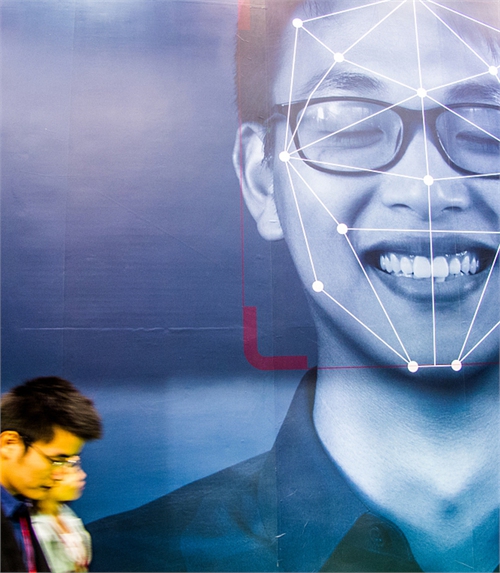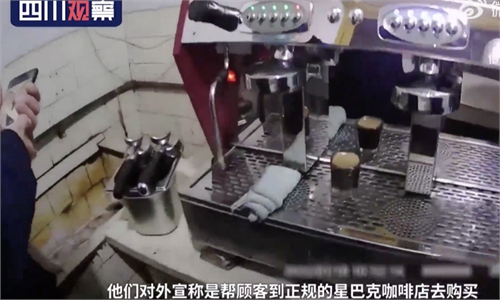China's consumer rights gala exposes problems of internet security and food safety

Screenshot of video showing workers processing the pickled cabbage at the Hunan Chaqi Vegetable Co Ltd. Photo: Weibo
China's consumer rights gala held on Tuesday to mark the World Consumer Rights Day exposed cases of violations of consumer rights in various sectors, including internet security, food safety, livestreaming, blind boxes and beauty clinic training among others.
The 3.15 Gala, an annual show produced by China Central Television focusing on the protection of consumers' rights, revealed the lack of hygiene in the processing of pickled cabbage, at the Hunan Chaqi Vegetable Co Ltd.
A video showed workers, some wearing slippers, some barefoot, stepping on the pickled cabbage. Others were smoking and one even threw the cigarette butt directly into the cabbage.
The topic "3.15 Gala pickled cabbage" immediately went viral on social media as consumers are concerned after eating the pickled cabbage flavored instant noodles.
China is the world's largest consumer of instant noodles, with 46.35 billion servings consumed in 2020, accounting for 40 percent of the global total.
E-commerce platforms like JD.com, Taobao and Hema later removed the pickled cabbage flavored instant noodles and other related products with the ingredient.
According to Chaqi's website, its partners include KFC, Master Kong and many other businesses. The company also said that it has established strategic cooperative relations with many well-known enterprises, such as Uni-President and McDonald's, on product processing and direct supply of raw materials.
However, Chaqi's website was shut down right after the 3.15 Gala.
KFC later said that Chaqi is not one of its suppliers and is contacting the company to take down the misinformation on the website.
In terms of internet security, the gala revealed typical cases like bundled installation of computer software and harassing phone calls that leaked personal information.
The gala also launched for the first time an information security laboratory that tested children's smart watches during live broadcast, showing how malicious programs can easily enter children's smart watches and steal personal information.
Irregularities in the information and communications sector have been a constant focus of the 3.15 Gala in recent years.
In 2021, the Ministry of Industry and Information Technology detected over 2 million apps, notified 1,549 that were violating rules and removed 514 that refused to rectify.
At the same time, legal protection has improved with the Data Security Law and the Personal Information Protection Law that came into effect on September 1 and November 1, 2021, respectively. These laws regulate the excessive collection of personal information by apps and the infringement of consumers' rights through big data.
As of December 2021, China has 1.03 billion internet users. This big population made internet security and personal information protection more important than ever.
Problems in the livestreaming industry, an emerging industry in China especially amid the booming development of e-commerce, were revealed for the first time on the gala, including quality of products, cheating on prices, rewards, manipulation of search results and comments control.
According to iiMedia Research Group, the number of livestreaming users in China reached 635 million in 2021 and is expected to reach 660 million in 2022.
By December 2021, the number of livestreaming e-commerce enterprises in China reached 58,000, with a market size of 1.2 trillion yuan ($188 billion) which is expected to reach 1.44 trillion yuan ($226 billion) in 2022, according to iiMedia Research.
In 2021, the China Consumers Association accepted 1.04 million complaints from consumers, up 6.4 percent year-on-year. Among them, the number of Internet service complaints was as high as 102,674, ranking second in the service category.
A total of 836,000 complaints were solved, with a resolution rate of 80 percent with savings of 1.52 billion yuan ($238.6 million) on economic losses for consumers.
According to a survey released by the China Consumers Association on Tuesday, nearly 70 percent of respondents expressed confidence in the overall domestic consumption environment, and about 60 percent recognized the standardization of the development of the domestic Internet economy.
However, the degree of trust of consumers on online business operators was lower than on offline enterprises, the survey showed.


